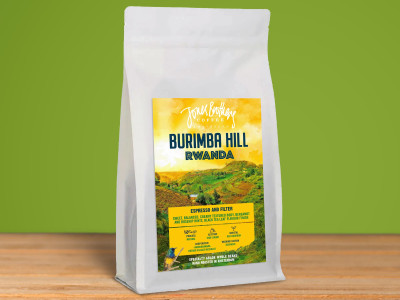From beans to machines, we can help with all your coffee needs.
Join a coffee plan
Sign up to a regluar delivery of coffee capsules, straight through your letterbox.
Start here →Beans
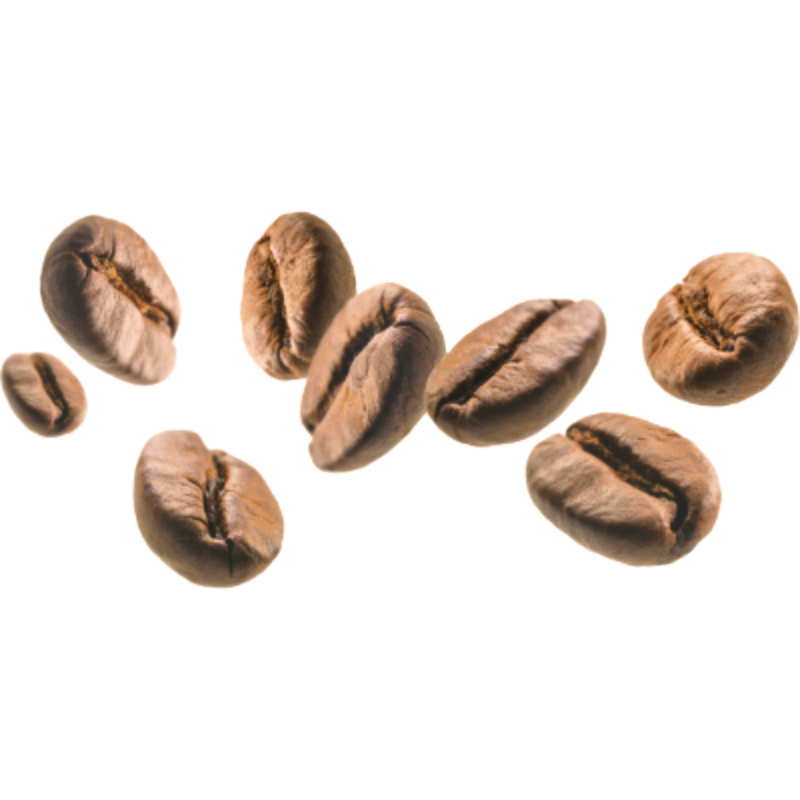
Beans
Whole coffee beans, sustainably sourced, 100% Arabica.
M*lks
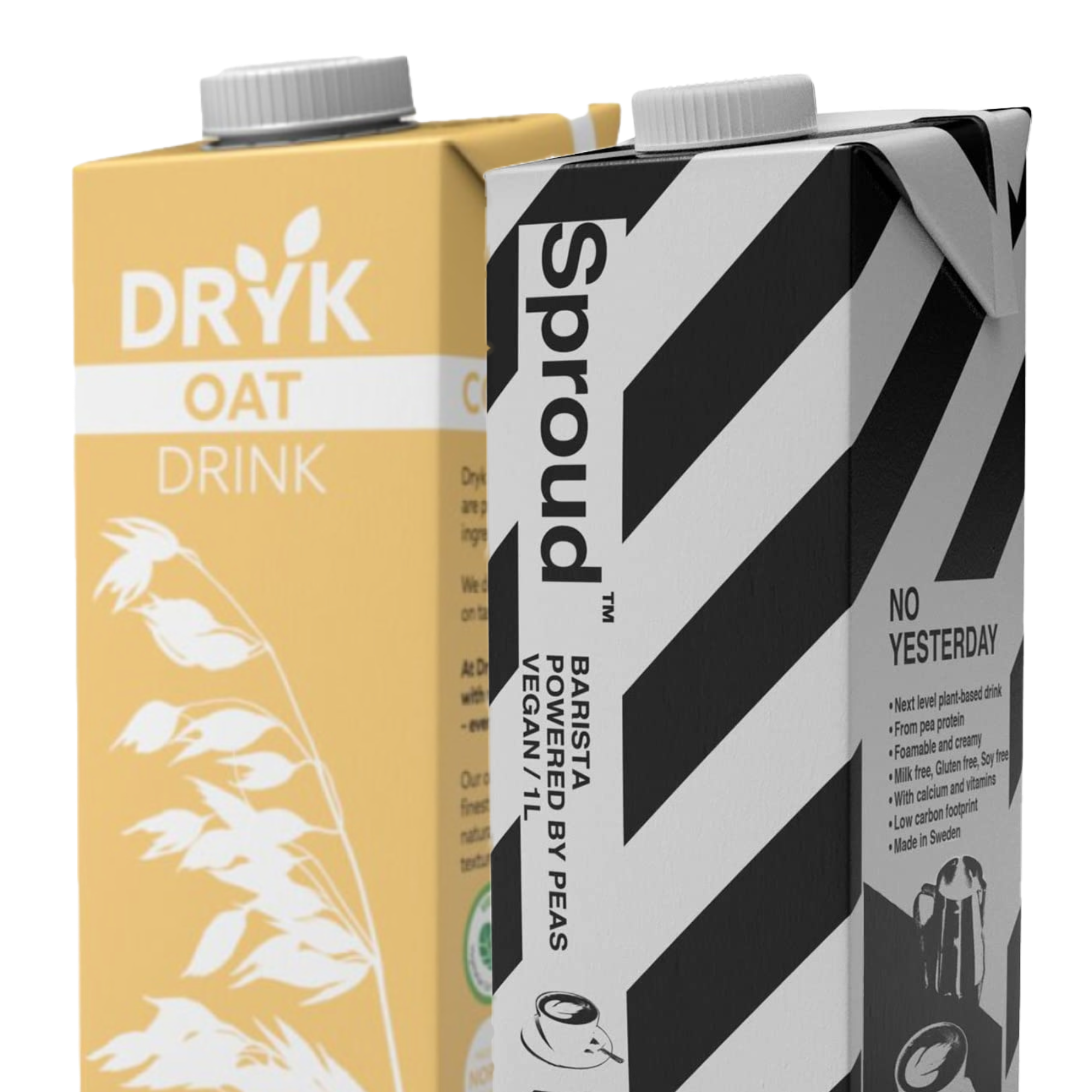
M*lks
Plant-based milk alternatives to compliment your coffee.
Gear

Gear
Great accessories to improve your coffee experience.
Moccamaster
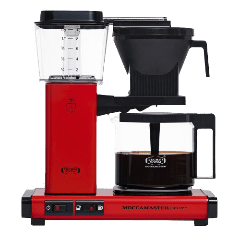
Moccamaster
Expert coffee machine for your home.
PINK ELEPHANT – Doi Saket, Thailand Specialty Coffee Beans
Let’s talk about Specialty coffee from Thailand. Many people are surprised that any coffee is coming out of Thailand, let alone coffee of this quality. We are proud to be working with Beanspire Coffee, a group of coffee enthusiasts and exporters in Thailand and This Side Up Coffees from The Netherlands, to bring you this gorgeous Specialty coffee from Thailand.
Specialty Coffee from Thailand Doi Saket
Doi Saket is a small farm cooperative nestled in the high hills overlooking Chang Mai in the north of Thailand. It is the oldest coffee growing region of Thailand. Back in the late 1970s, the first Arabica trees that were part of the opium replacement program of the Thai King were tested here, and have never been replaced by higher-yield cultivars like in many other regions. The small number of Yellow Bourbon tall trees growing among the larger group of Typica trees of Doi Saket are over 30 years old and produce a rare yellow fruit cherry coffee bean at harvest time.
Doi Saket is the epitome of shade grown coffee farms which helps in the longer maturation and quality of the coffee beans cherries. The trees are grown under a forest with many micro mills, each producing only about one ton of green coffee beans per year.
See below our Marketing Director Chrystele, interviewing Fuadi from Beanspire, the coffee exporter of our Pink Elephant, during the World of Coffee 2019 in Berlin.

Our Pink Elephant Specialty coffee beans
Our Pink Elephant Specialty coffee beans have been carefully picked and dried with the fruit on in the sun. Creating a natural fermenting process to add an extra dimension and complexity to the taste profile, this is called “natural process”. Want to know the difference between natural process coffee and washed process coffee? Read this article.
This is our second year with coffee from this Doi Saket farm and compared to last year’s crop, we have found there is a light peach aroma, lower levels of acidity with the added characteristics of ripened pink grapefruit sweetness. And yet the slight chai spiced undertone adds a wonderful earthiness to the cup. There is a low to medium bodied texture and the light cinnamon and dark chocolate aftertaste completes this intricate and yet beautifully balanced coffee.
These tiny number of trees have been nurtured by the farm to deliver an exceptional crop ready for export for only the 3rd year. We feel extremely lucky to have access to these beans.
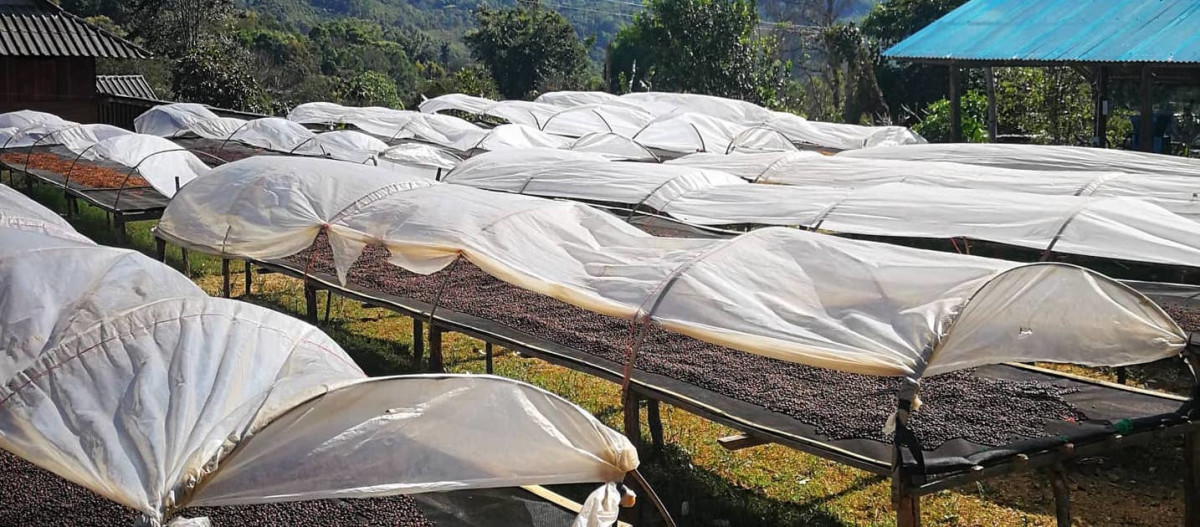
More about Specialty Coffee from Thailand
Thailand is not traditionally known as a specialty coffee producing country, yet it has been producing Arabica coffee since the early 1980s. It started off as part of the Thai King’s opium eradication project. Because Arabica coffee thrives in a similar condition as opium, it was selected as a substituting crop against the cultivation of the illicit plant. Today, Thailand produces about 8,000 tons of Arabica coffee, mainly in the mountainous north of the country. On top of that, Thailand produces about ten times as much Robusta coffee, making it the third largest coffee producer in Asia.
Thailand specialty coffee is rarely seen in the top specialty roaster segment abroad. The main reasons for this are twofold. Thailand is a middle-income country and has a thriving local coffee market. That means relatively high production costs for a relatively undemanding coffee market.
Having said this, a strong specialty coffee segment is emerging. At least on the consumer side, the Third Wave is quite well established, with artisan roasters and cafés in Bangkok and Chang Mai. These roasters have recently begun to develop and buy local coffees too, not in the least because of import tariffs on foreign coffees. However, this scene is still very small and for now, hardly creates enough incentives for farmers to improve the quality of their coffee to specialty grade. So even though they have been doing a great job at pushing the limits of Thai coffee, the specialty coffee scene would be greatly aided with more specialty coffee knowledge and global integration.
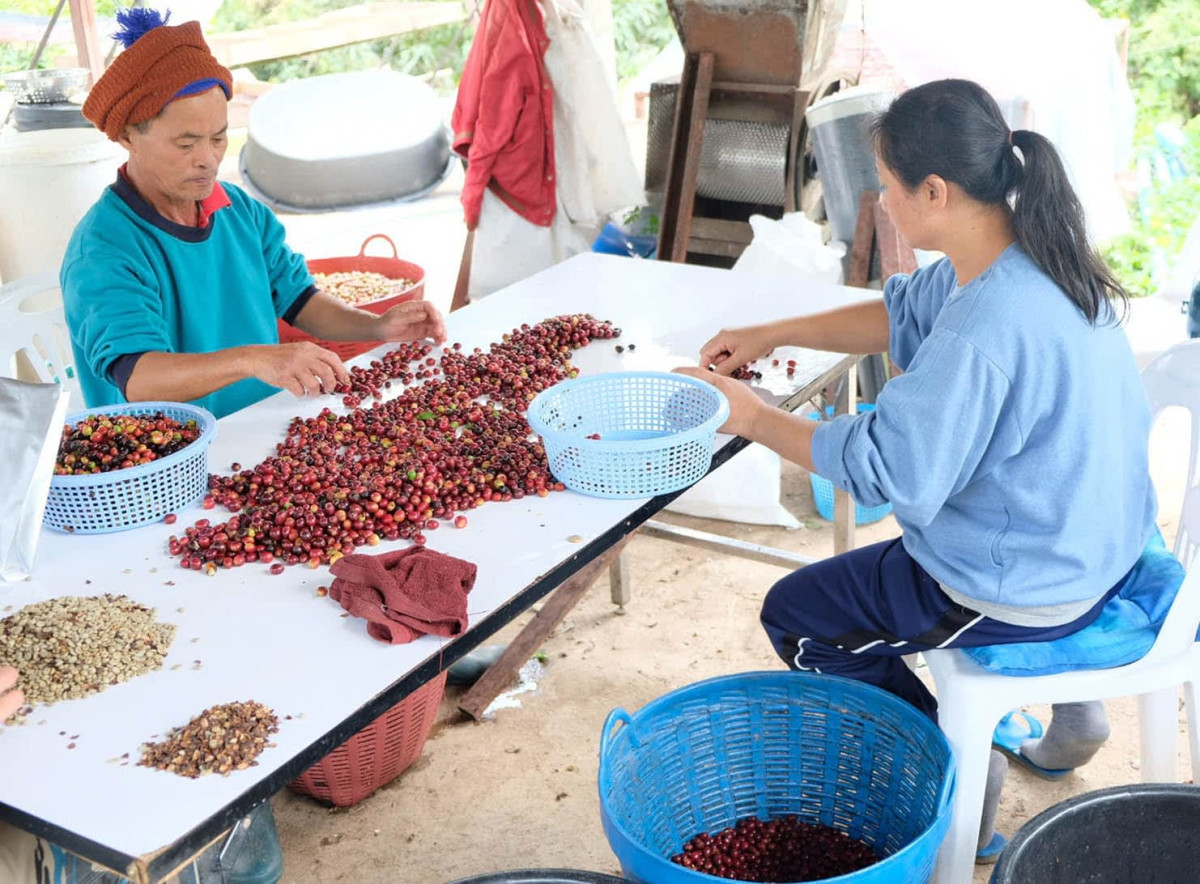
Why we work with This Side Up Coffees (selective green bean importers)
This Side Up sees an important opportunity to showcase Thailand specialty coffee beans to the world’s specialty coffee scene. Precisely because of the higher production prices and living standards. Exposure to the specialty coffee phenomenon in relatively stable economies has made them leaders in innovation, labour and environmental protection. Equally importantly, has made coffee farming, even on a micro-mill scale, lucrative for the next generation.
As a global society, we should be getting used to consumer prices that reflect a higher level of country development and social justice. We therefore have the ambitious goal to demonstrate, however small we are, that by kick-starting an increase in exposure and quality investment, Thailand and its young generation of coffee entrepreneurs could enter into a race to the top. Thailand could become a country known internationally for its superb specialty coffees – and in time set an example for the entire Asian region.
At Jones Brothers Coffee, we are proud to be a small part of this development and exposure of Thailand specialty coffee to the world.


